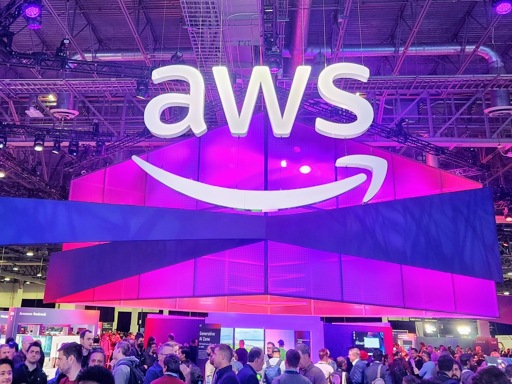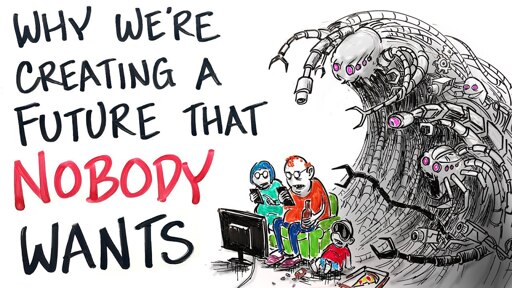SemanticWebBrowser - A browser for the semantic web with a controlled natural language as the primary interface
-
This reads like someone played madlibs with an early draft sci fi show script.
that or just total bullshit
-
The fundamental idea of this paper is for ChatGPT-like apps to lose natural language for less energy consumption and more determinism in their answers based on controlled natural languages like ACE; for the user to be able to modify this trade-off-ratio at will based on LLMs
(which is not possible when starting from a ChatGPT-like app); and to capture this new paradigm in a new type of browser that has natural language as its primary interface, here called a semantic web-first browser.Seems weird, but there's another application of these models that for me doesn't - to convert, say, usual webpages into webpages with proper semantic markup or something like that. For readability and scraping and what not.
Possibly even to make "self-adjusting" gateways representing, say, a social network webpage as an XMPP service. Or to use PGP for private messages in them. Something like that.
Anyway. Until someone does something like that, and that takes enormous amounts of work and discipline, that's just blabber.
-
The fundamental idea of this paper is for ChatGPT-like apps to lose natural language for less energy consumption and more determinism in their answers based on controlled natural languages like ACE; for the user to be able to modify this trade-off-ratio at will based on LLMs
(which is not possible when starting from a ChatGPT-like app); and to capture this new paradigm in a new type of browser that has natural language as its primary interface, here called a semantic web-first browser.interesting idea. there are already text-based browsers like qutebrowser but they require mastering a command language. creating a natural language interface based on a constrained language is bound to come with the same sort of problem apple had with hypercard: easy to read, diabolic to write. i wonder how they solve for that.
-
This reads like someone played madlibs with an early draft sci fi show script.
no this makes sense, as long as you figure out that it's not actually about llms at all. they are just used as an example of what interaction would look like.
-
interesting idea. there are already text-based browsers like qutebrowser but they require mastering a command language. creating a natural language interface based on a constrained language is bound to come with the same sort of problem apple had with hypercard: easy to read, diabolic to write. i wonder how they solve for that.
there are already text-based browsers like qutebrowser
hypercard
Awesome! Thanks for the references, didn't know there were already some applications in this direction
-
there are already text-based browsers like qutebrowser
hypercard
Awesome! Thanks for the references, didn't know there were already some applications in this direction
there is a rich history of programming languages which are supposed to read like natural language. it gave us beauties like COBOL, SQL, and HyperCard. in other words, it's not good.
as for text browsers, nyxt is probably the one that's closest, or some browser mode in emacs.
ultimately what you want with navigation is precision and minimal typing, so a natural language interface is slow, and an ACE interface would be even slower.
-
there is a rich history of programming languages which are supposed to read like natural language. it gave us beauties like COBOL, SQL, and HyperCard. in other words, it's not good.
as for text browsers, nyxt is probably the one that's closest, or some browser mode in emacs.
ultimately what you want with navigation is precision and minimal typing, so a natural language interface is slow, and an ACE interface would be even slower.
I don't know. Basically, if you already know what you want, maybe you only want to type down a couple of statements (maybe even from a template or a tutorial that you found online), modify some stuff and then hit enter. And maybe this modifying of language could be the "browsing" part of the browser.
If you look at it like this it would also be immediate and precise. You would only need to add very good code completion tools, e.g. when you click on a noun, you see all the attributes it has in your ontology. Much like in a IDE. There you also "browse" the space of all potential programs with the interface of language with code completion for keywords and defined concepts, which act like links in traditional browsers.
In contrast, the semantic web is like a open, global code base, where everybody can contribute to. And traditional browser could not successfully implement a language interface because the code base had no defined semantic, this would be possible for the semantic web. And using LLMs, it could be propagated into other web paradigms.
-
I don't know. Basically, if you already know what you want, maybe you only want to type down a couple of statements (maybe even from a template or a tutorial that you found online), modify some stuff and then hit enter. And maybe this modifying of language could be the "browsing" part of the browser.
If you look at it like this it would also be immediate and precise. You would only need to add very good code completion tools, e.g. when you click on a noun, you see all the attributes it has in your ontology. Much like in a IDE. There you also "browse" the space of all potential programs with the interface of language with code completion for keywords and defined concepts, which act like links in traditional browsers.
In contrast, the semantic web is like a open, global code base, where everybody can contribute to. And traditional browser could not successfully implement a language interface because the code base had no defined semantic, this would be possible for the semantic web. And using LLMs, it could be propagated into other web paradigms.
i'm no longer sure if you're envisioning a web browser or a website builder. your terminology is all over the place.
and no, the semantic web is in no way an an open, global codebase. it's just a way of structuring html. i know berners-lee wanted the web to be more like what you are describing but the web we have today is not that. you'd need a new protocol.
-
i'm no longer sure if you're envisioning a web browser or a website builder. your terminology is all over the place.
and no, the semantic web is in no way an an open, global codebase. it's just a way of structuring html. i know berners-lee wanted the web to be more like what you are describing but the web we have today is not that. you'd need a new protocol.
i’m no longer sure if you’re envisioning a web browser or a website builder. your terminology is all over the place.
I's blurring the line in-between. It's trying to set the interaction with the web on a lower level that is closer to the data. It's like you are live-coding the website you want to use for a specific use-case. But then just call the high-level API-endpoints right away. Basically making the dev-tools and the dev-console of browsers the main way to interact with the web (which assumes a web that is build in a similar fashion).
and no, the semantic web is in no way an an open, global codebase. it’s just a way of structuring html. i know berners-lee wanted the web to be more like what you are describing but the web we have today is not that. you’d need a new protocol.
Yeah, that's true

-
i’m no longer sure if you’re envisioning a web browser or a website builder. your terminology is all over the place.
I's blurring the line in-between. It's trying to set the interaction with the web on a lower level that is closer to the data. It's like you are live-coding the website you want to use for a specific use-case. But then just call the high-level API-endpoints right away. Basically making the dev-tools and the dev-console of browsers the main way to interact with the web (which assumes a web that is build in a similar fashion).
and no, the semantic web is in no way an an open, global codebase. it’s just a way of structuring html. i know berners-lee wanted the web to be more like what you are describing but the web we have today is not that. you’d need a new protocol.
Yeah, that's true

you should probably also check out beaker browser then, it's also trying to blur the line.
personally i don't know if there is an actual benefit. most people seem content not producing things in fields they're not interested in. we'll never be able to get everyone on board with making websites no matter how simple the interface, just like we'll never be able to get everyone on board with gardening or carpentry. if you want to do it, you will learn. if you don't the learning curve is not the problem.




